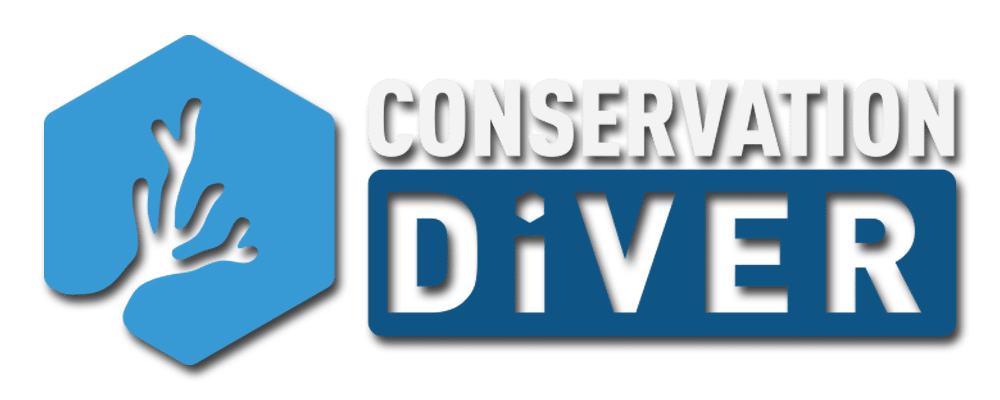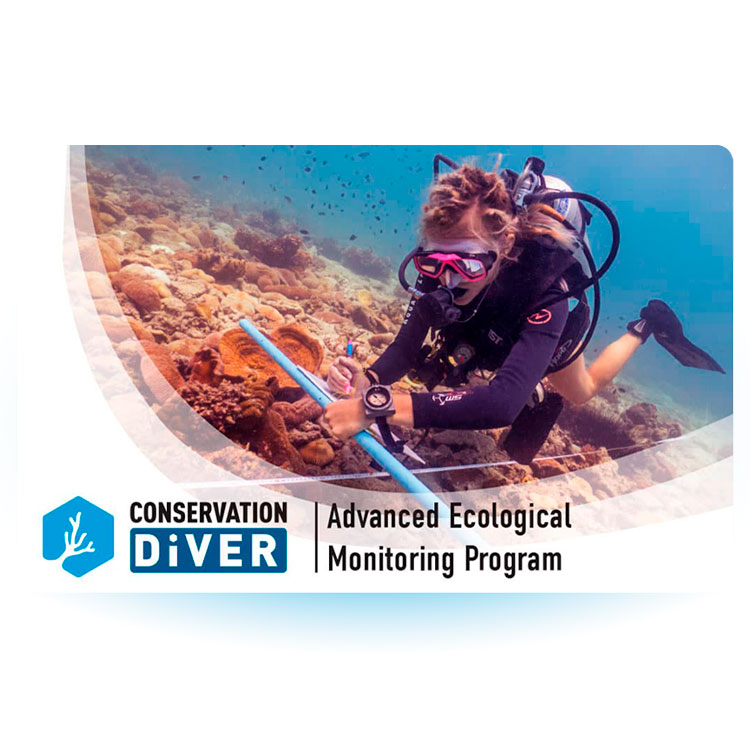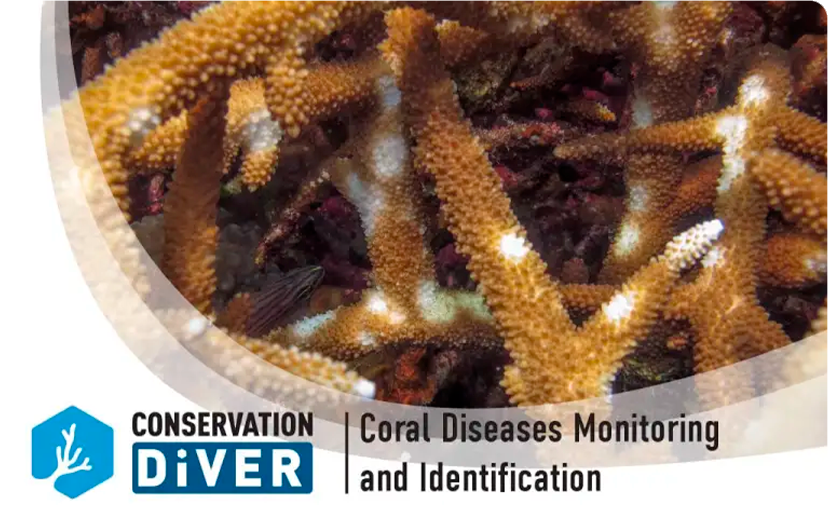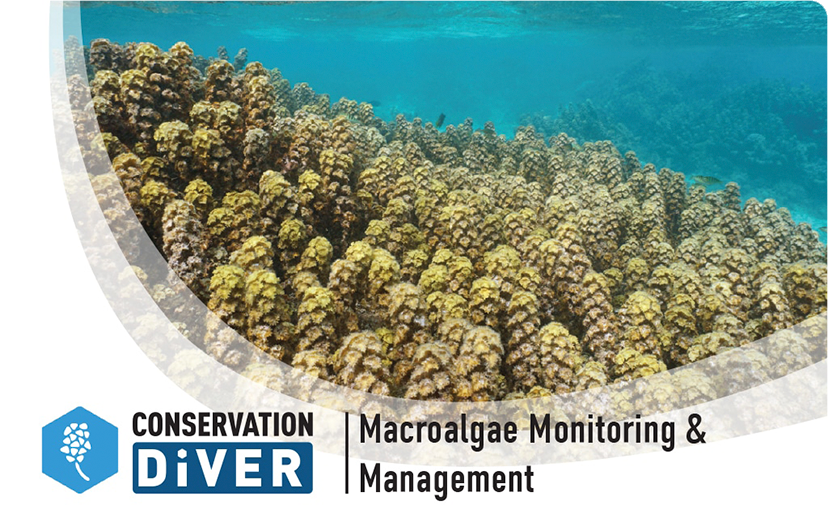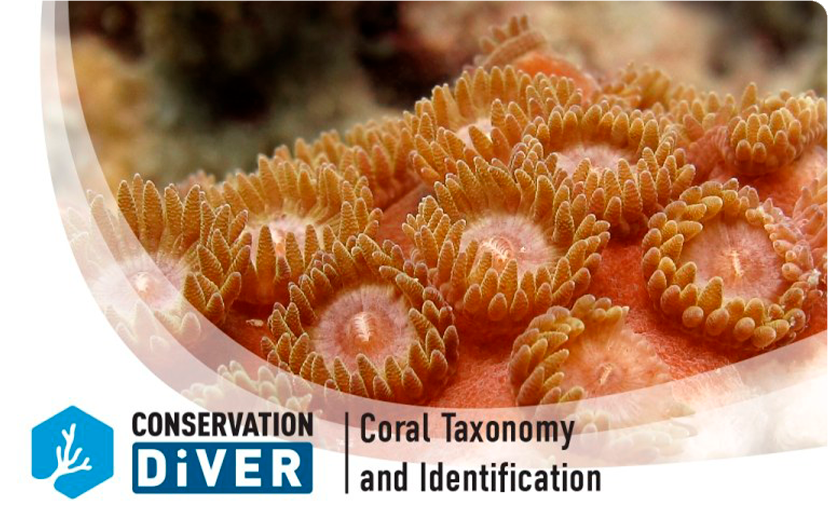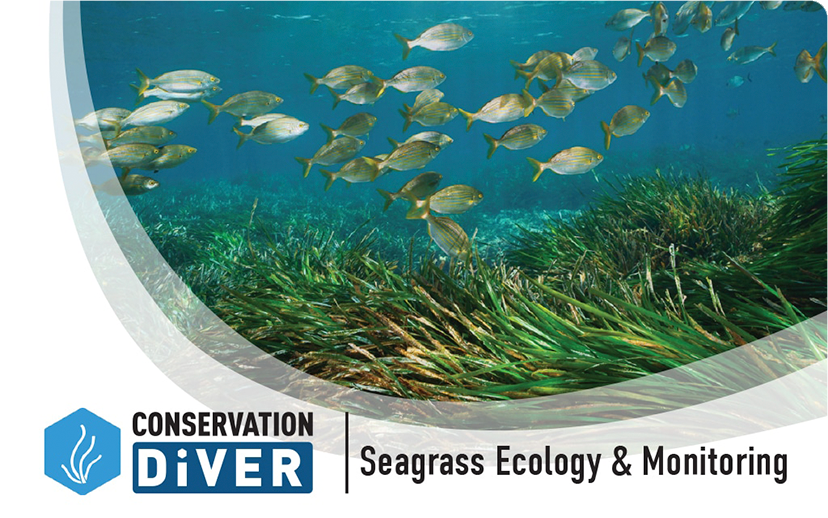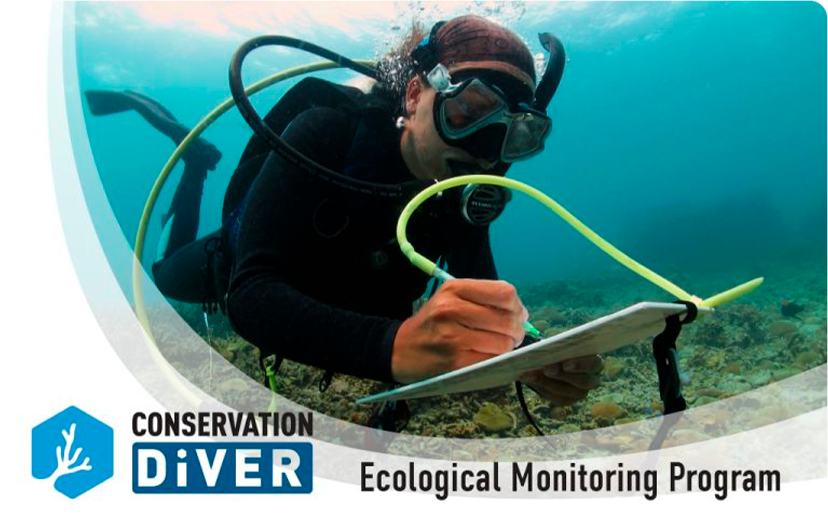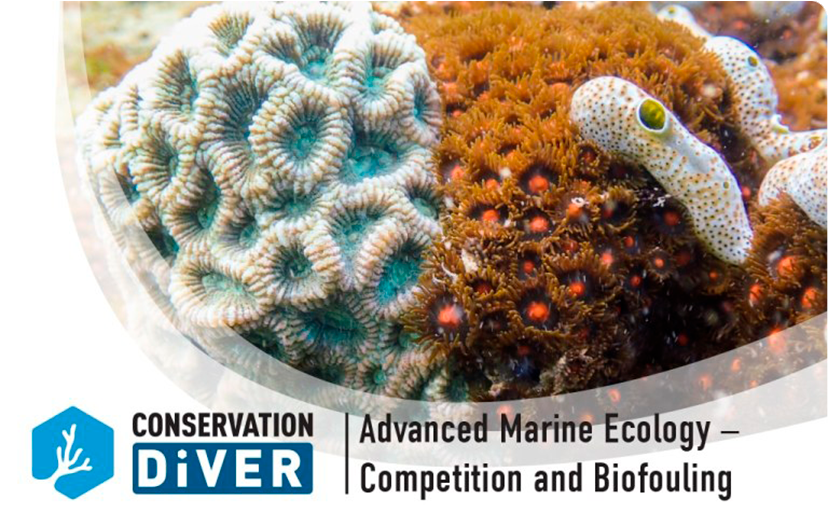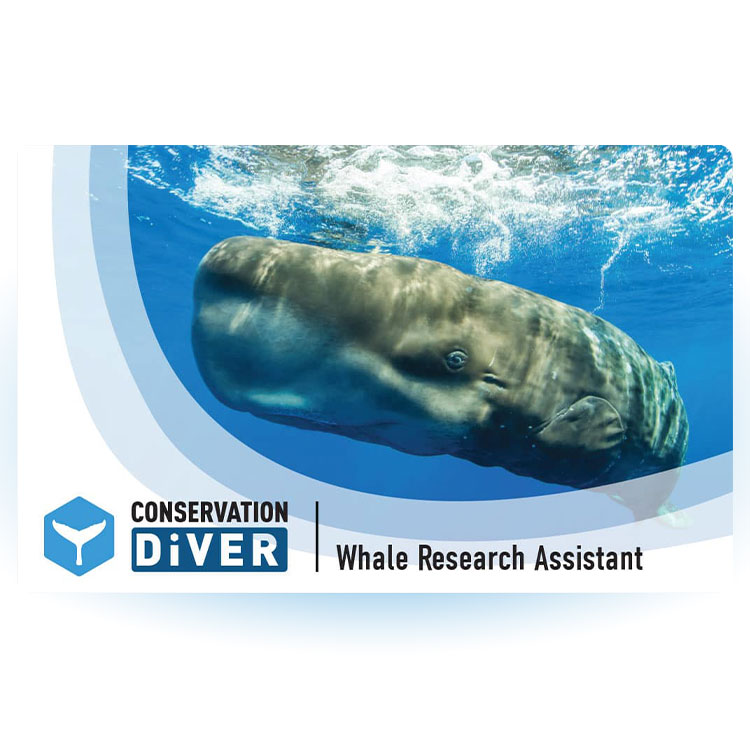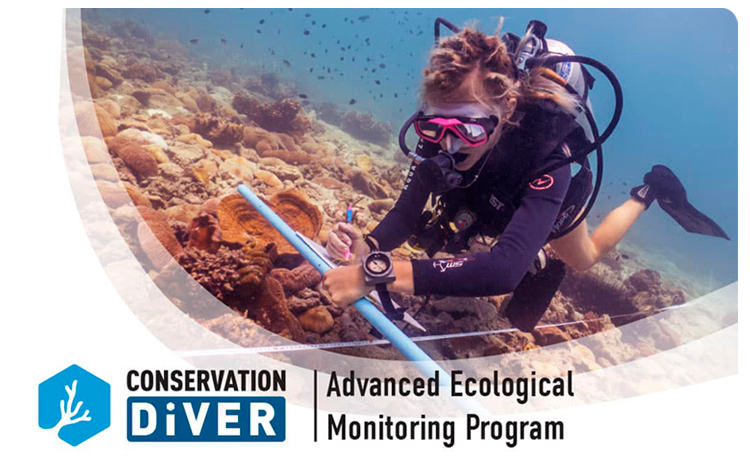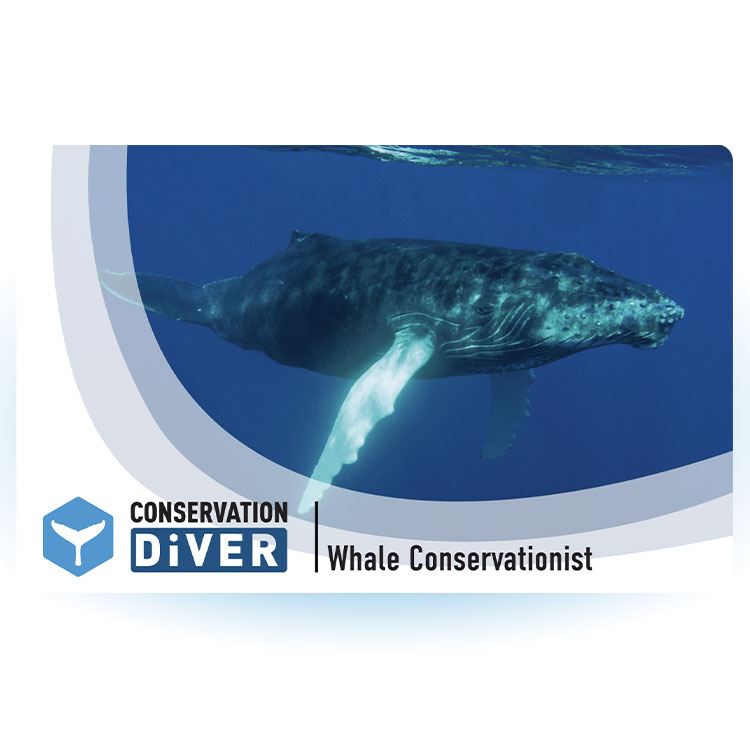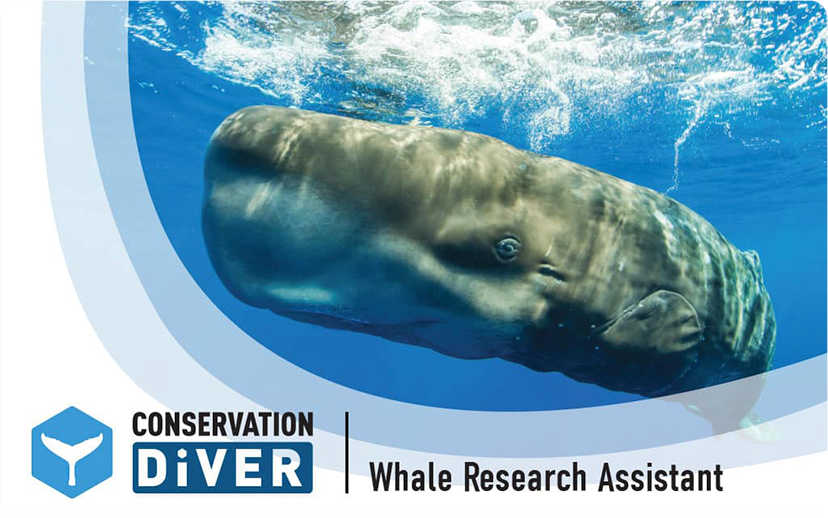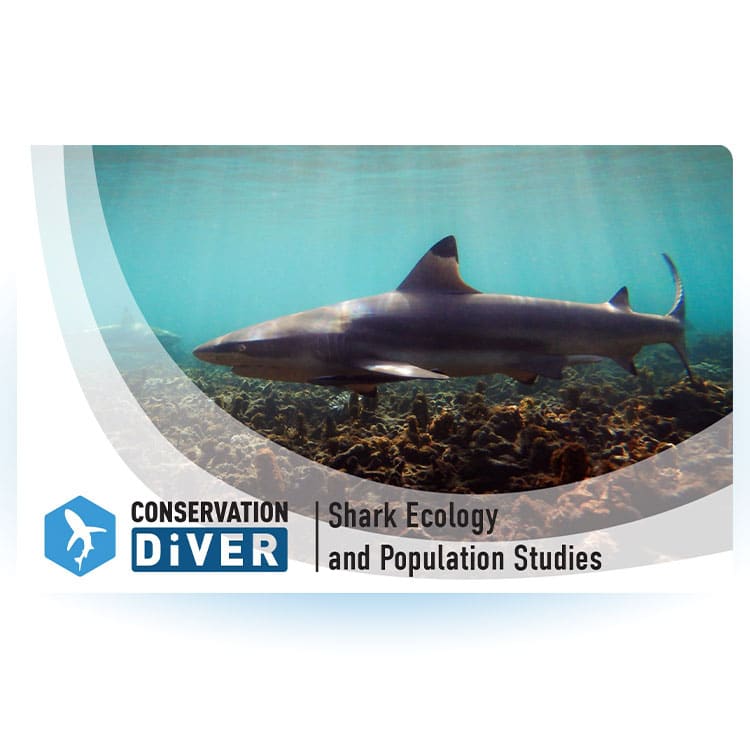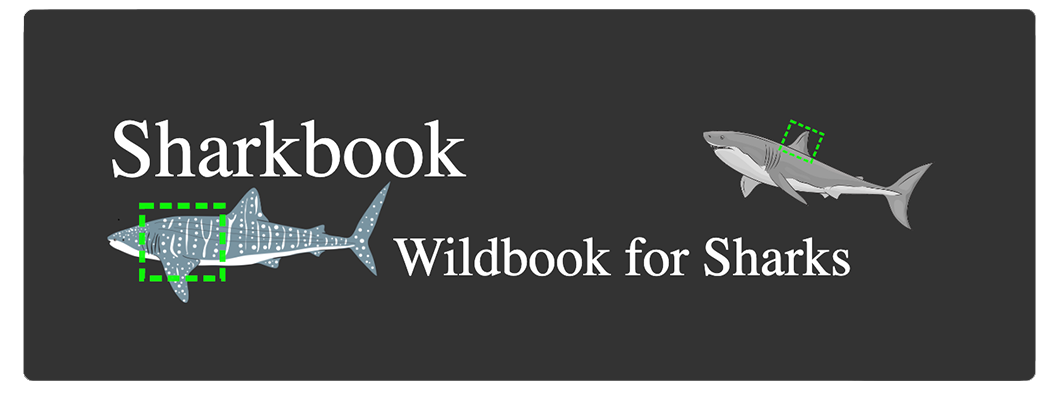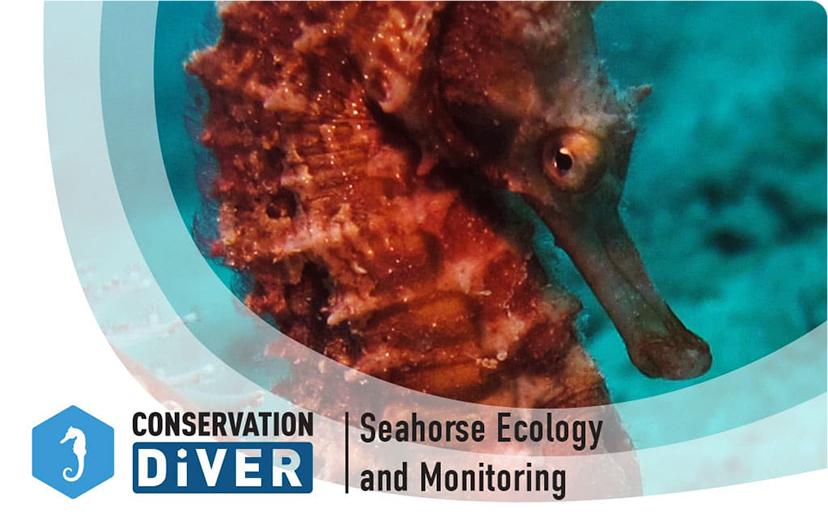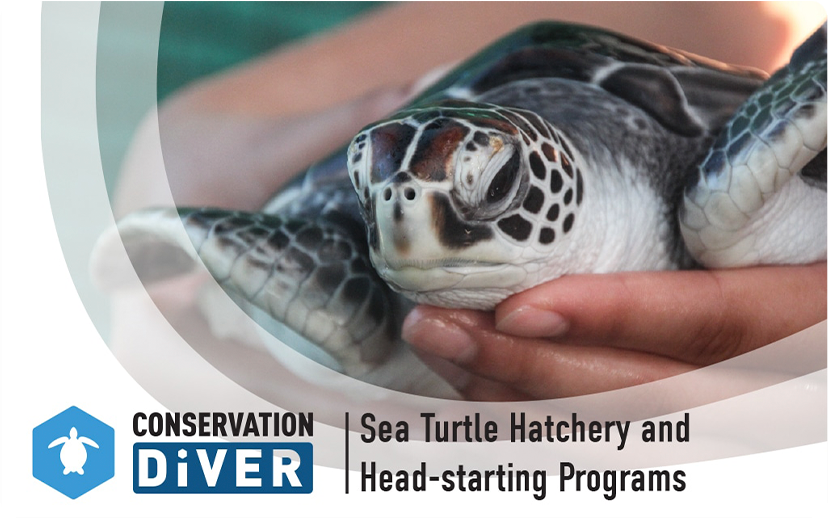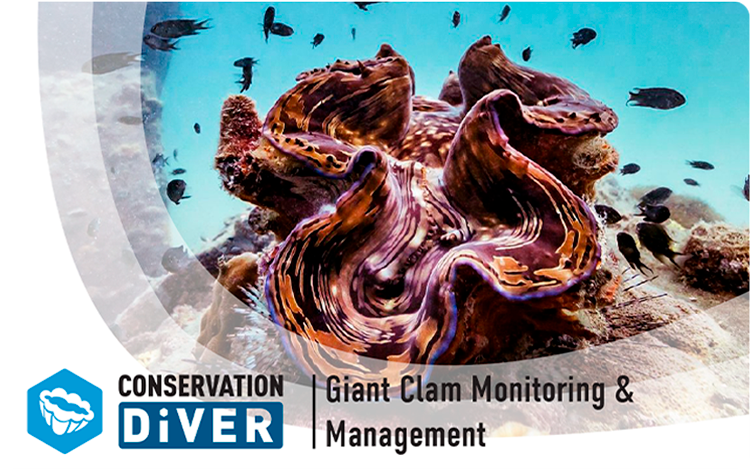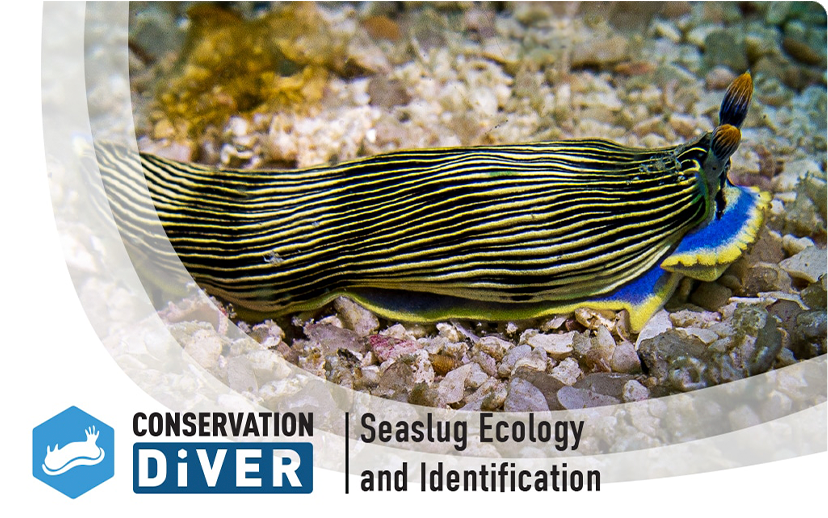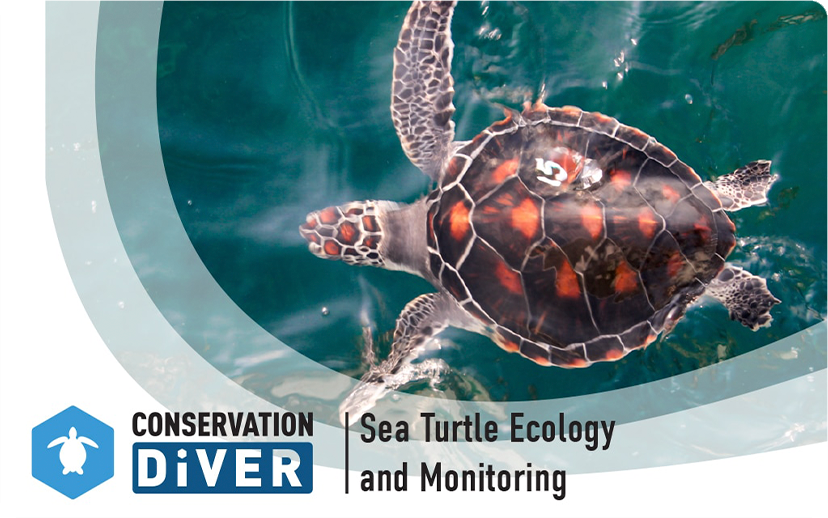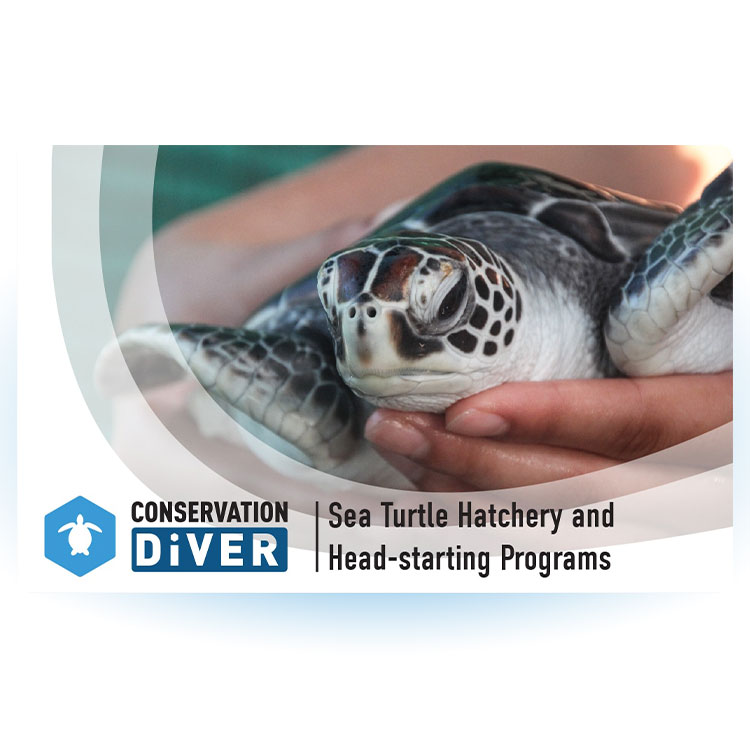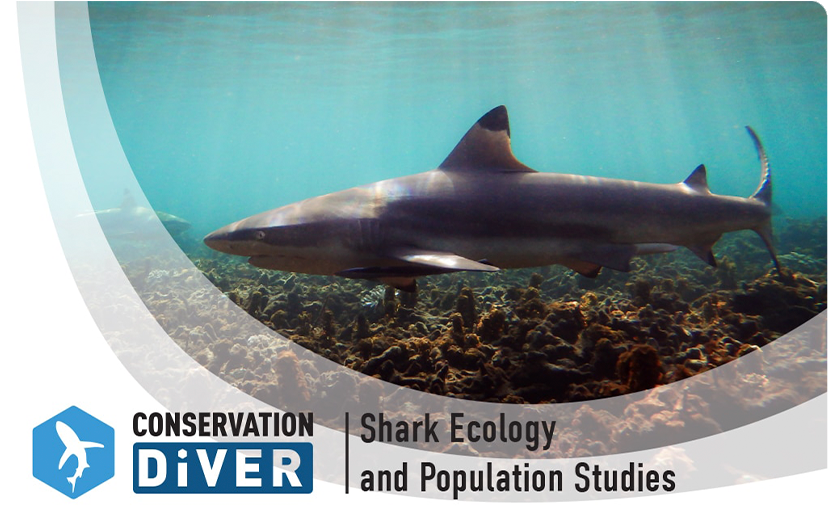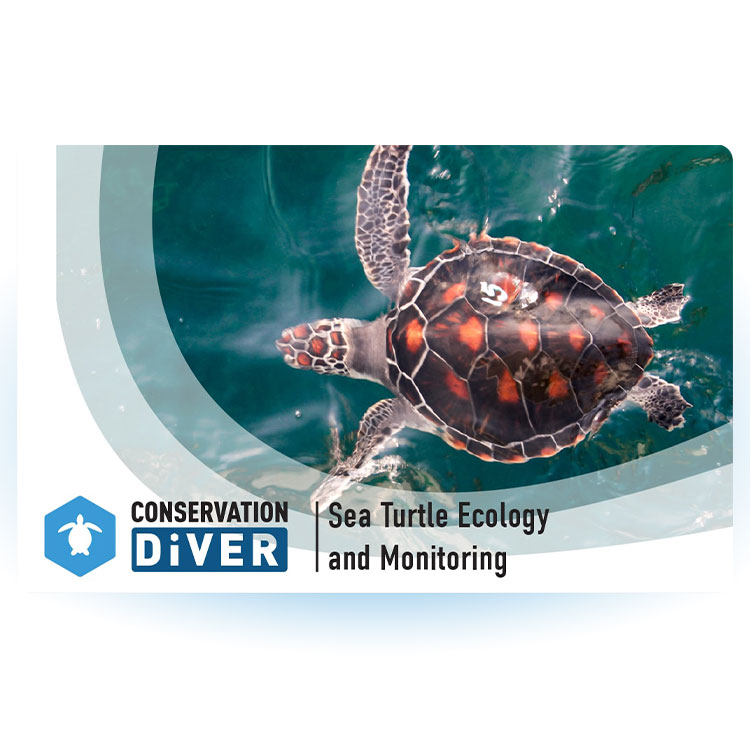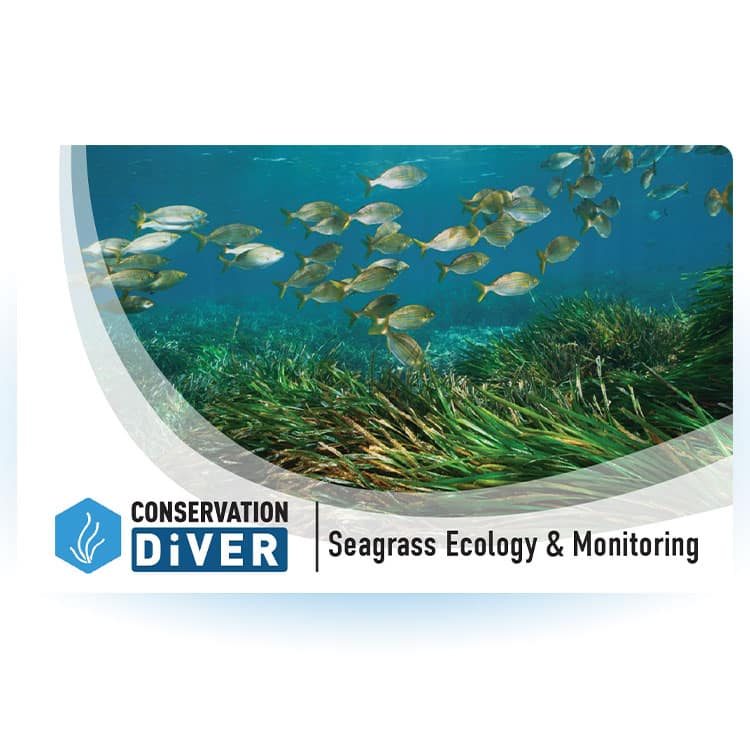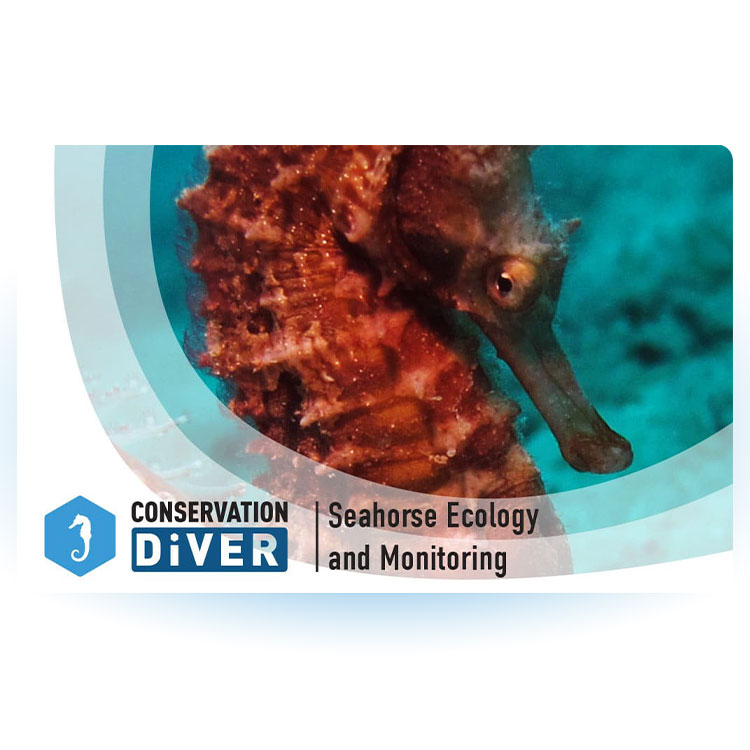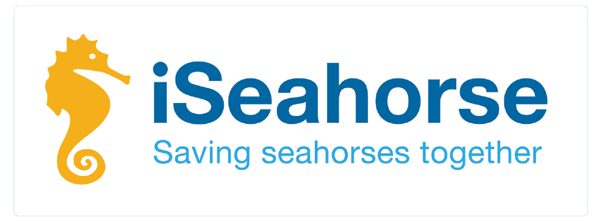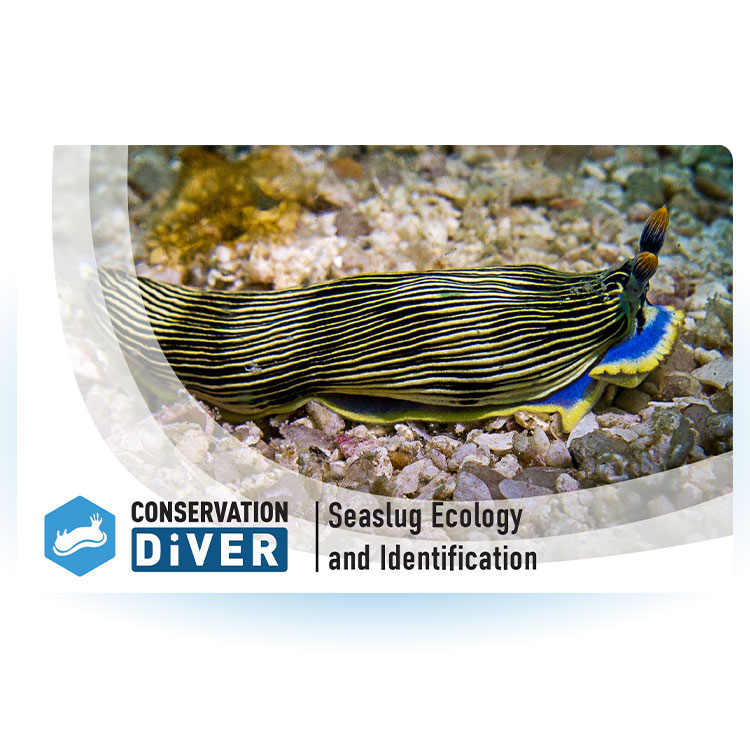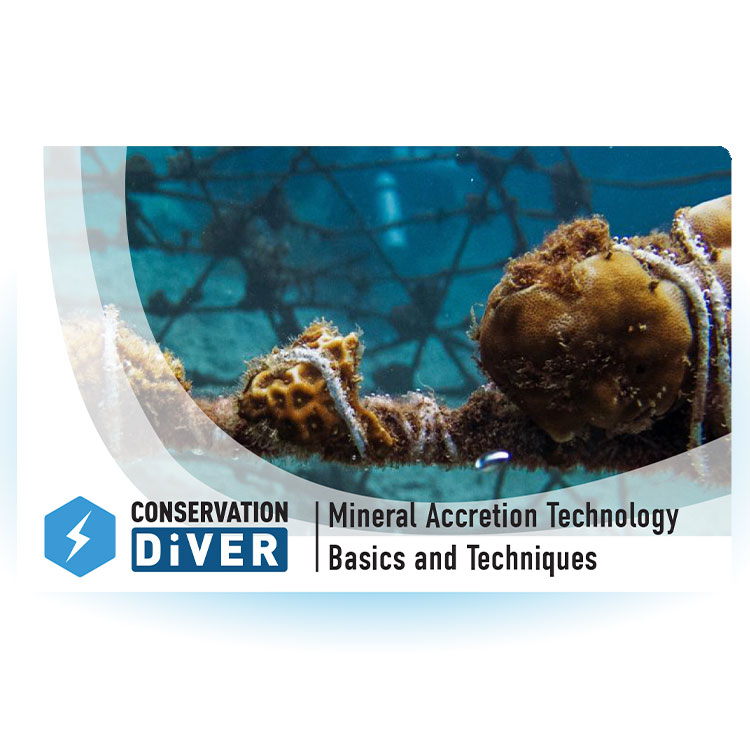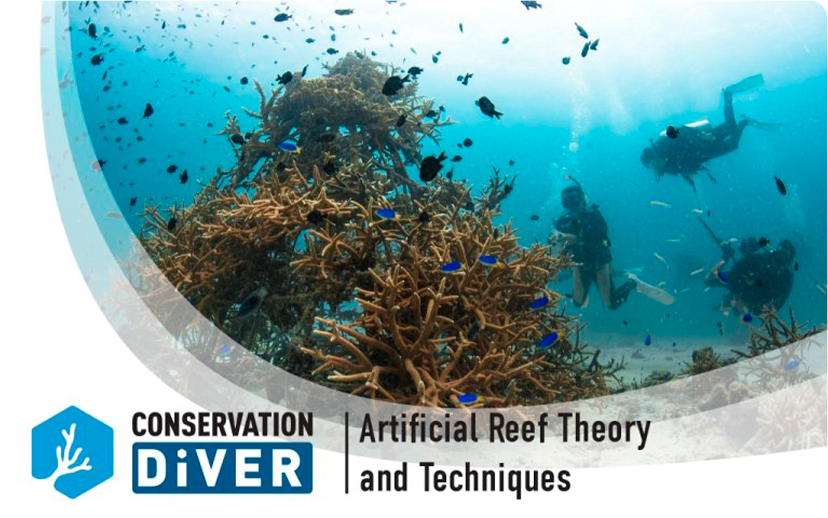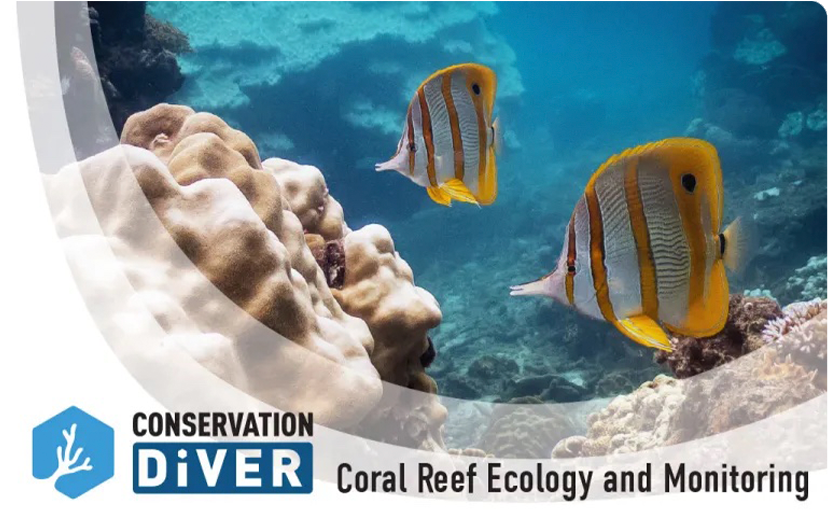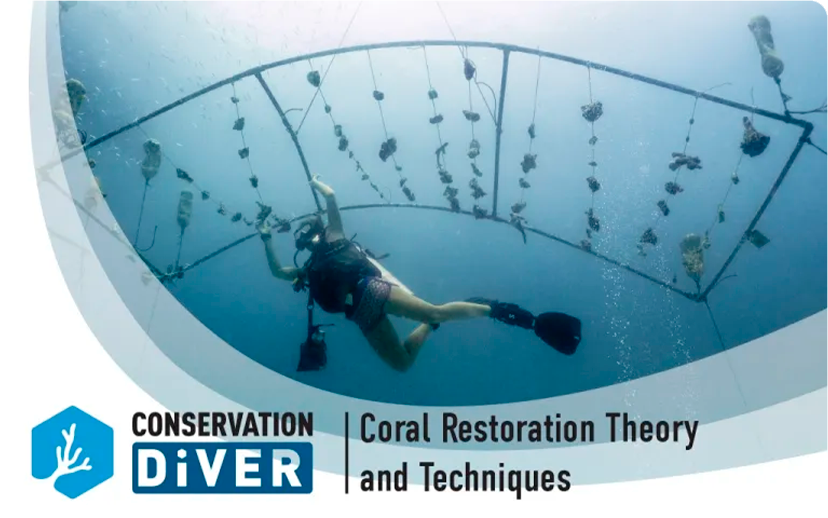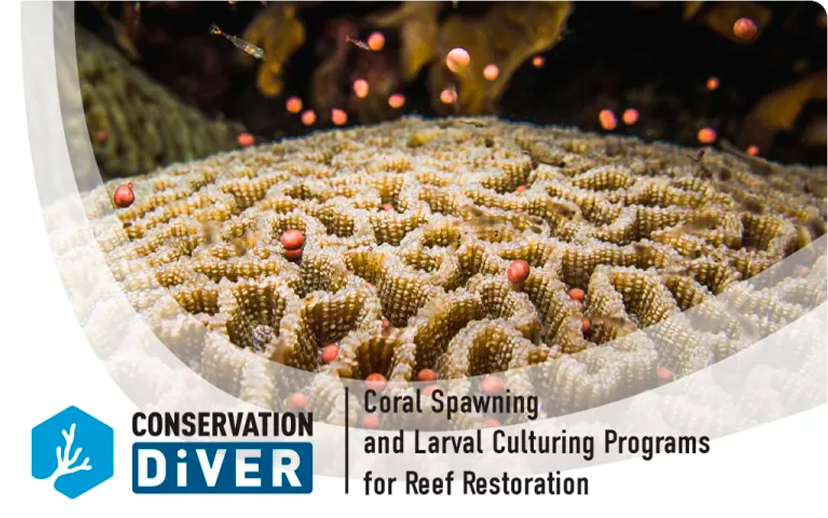Research Assistant

Research Assistant
The Research Assistant certification is the highest achievement a student at Conservation Diver can attain. It signifies a level of dedication and passion for research and conservation efforts and is awarded to those who have dedicated their time and effort to become a valued team member of one of our Training Centers.
This is not a course in the traditional sense but represents the awards status given to our high achieving interns.
Gain mentorship and training in marine conservation and research skills.
Join an innovative team to deliver impactful conservation projects and research.
Enhance your academic profile and career prospects with comprehensive support.
Receive career guidance, a recommendation letter, and CV enhancement.
Program Eligibility and Requirements
In order to apply for a Research Assistant internship, you must have completed the majority of the student level courses at Conservation Diver or have the equivalent practical fields skills to conduct such research.
Role Summary
- Indirectly supervise new students during the restoration and research diving activities
- Prepare conservation equipment for the day (ie. slates, pencils, tools, reels, etc)
- Encourage productive discussion during group activities
- Assist on the dive boat with equipment set-up and perform a pre-dive safety checks and carried out by divers
- Help to clean and put away the equipment after the dive
- Enter data collected
- Assist with after dive activities, including but not limited to: artificial reef construction, cleaning
- Manage beach clean up programs
- Complete an independent conservation or research initiative which includes written report or presentation
Whale Research Assistant
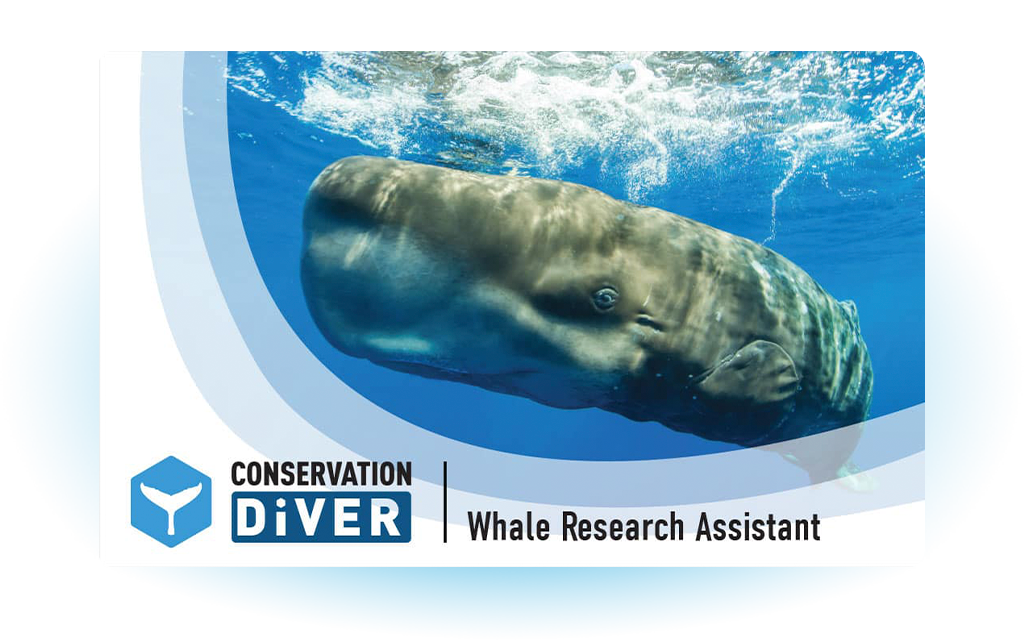
Whale Research Assistant
This course provides essential skills for assisting researchers on observation vessels and conducting field-based scientific research. It’s a part of an internship program where you’ll actively support daily excursions and data collection efforts. The training focuses on identifying various whale and dolphin species in the Azores, capturing scientifically significant photos for population and migration studies, and initiating the recognition of behavioral data points.
Develop the ability to identify the various whales and dolphins found in the Azores and understand the role of a lookout.
Gain knowledge about whale biology, including their ecology, migration, feeding habits, and social behavior, with a focus on Azorean cetaceans.
Learn field techniques for conducting whale surveys and recording data, including the importance of Photo ID, and acquire skills for managing and cataloging research databases.
Explore the conservation aspects and current threats to whales and dolphins, discover the ongoing scientific whale research in the Azores, and how to contribute to global whale studies. Additionally, learn basic boat skills and assist with boat duties.
Program Eligibility and Requirements
To join the Whale Research Assistant Program, participants need to meet the following criteria:
- Age Requirement: Applicants must be 16 years of age or older.
- Highly recommended to obtain a camera (DSLR, Mirrorless with at least 300mm zoom)
Upon Enrollment in the Course, participants will be required to:
- Attend the 5 Whale Research Assistant lectures
- Read all textbook chapters
- Complete textbook chapter reviews
- Complete the Whale Research Assistant exam and score at least 80%
- Pass the group presentation task
- Attend the practical briefing prior to the observation boat trip
- Manage and Input into Database
- Complete Whale Museum tour with given presentation
- Demonstrate proper photo-ID techniques
- Demonstrate a good level of boat management skills and competency
- Complete at least 8 boat trips to attempt to find and observe cetaceans
Whale Conservationist
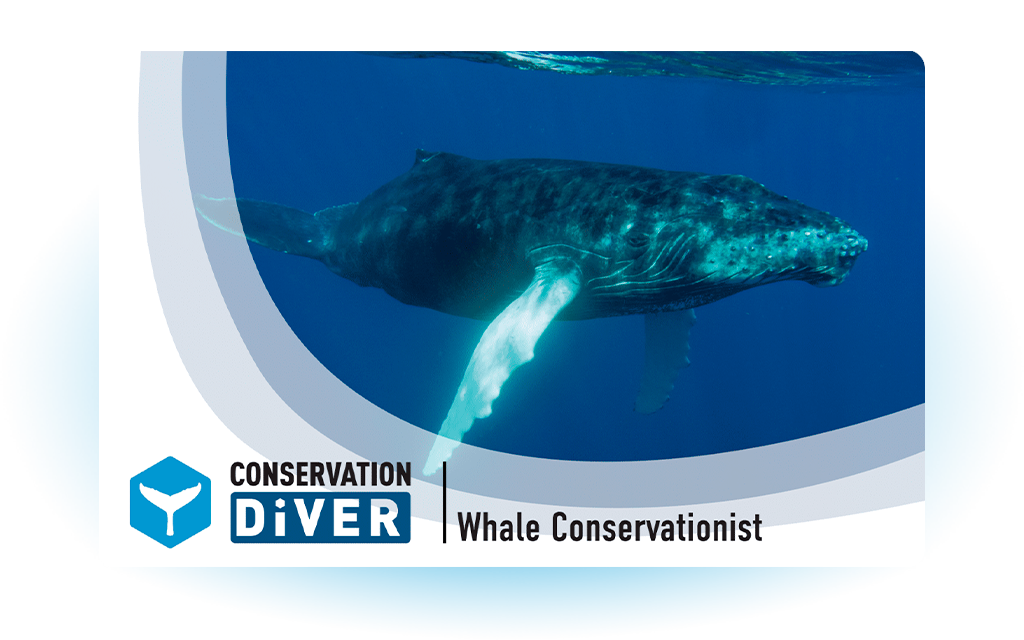
Whale Conservationist
Whales, often overlooked but revered in diverse cultures, serve as crucial unsung heroes in marine ecosystems. They play key roles in atmospheric regulation, trophic-level balance, and primary productivity enhancement as top predators and prey. To deepen your whale-watching experience and aid in their conservation, the Whale Conservationist course provides insights into whale life history and ecology, raises awareness about ongoing threats, introduces current conservation efforts, and equips participants with essential skills for contributing to photo identification research.
Recognize the significance of Photo_ID in whale research and master the techniques for collecting scientifically valuable identification data.
Understand the current threats to whales and explore actionable steps for their protection while contributing to global whale research, including projects in the Azores.
Learn how to conduct whale surveys effectively and record crucial data for research and conservation efforts.
Acquire a deep understanding of whale biology, including their behavior, anatomy, and ecological roles.
Program Eligibility and Requirements
To join the Whale Conservationist Program, participants need to meet the following criteria:
- Age Requirement: Applicants must be 16 years of age or older.
Upon Enrollment in the Course, participants will be required to:
- Attend the Whale Ecology and Research Lecture
- Complete the Whale Conservationist Exam and score at least 80%
- Attend the practical briefing prior to the observation boat trip
- Complete at least 1 boat trips to attempt to find and observe cetaceans
- If cetaceans are observed, collect relevant data and photographs as per local standards
- Attend debriefing and data entry
Published papers and reports derived through the teaching of this course
- Recruitment of hard coral communities on giant clam shells (Cardiidae: Tridacna) differ from surrounding reef habitats at a tourist destination in the Gulf of Thailand
Rahul Mehrotra, Alyssa Allchurch, Coline Monchanin, Chad M Scott - Citizen science reveals the population structure and seasonal presence of whale sharks in the Gulf of Thailand
Kirsty Magson, Emily Monacella, Chad Scott, Noémie Buffat, Sirachai Arunrugstichai, Metavee Chuangcharoendee, Simon J Pierce, Jason Holmberg, Gonzalo Araujo - Population dynamics of corallivores (Drupella and Acanthaster) on coral reefs of Koh Tao, a diving destination in the Gulf of Thailand by Chad M. Scott, Rahul Mehrotra, Margaux Y. Hein, Michelangelo S. Moerland, and Bert W. Hoeksema
- Rare zooxanthellate Nanipora octocoral (Helioporacea) in the Gulf of Thailand by Pau Urgell Plaza, Rahul Mehrotra, Chad M. Scott and James Davis Reimer
- Changes in hard coral abundance and composition on Koh Tao, Thailand, 2006-2014 by Chad M. Scott, Rahul Mehrotra, Madalena Cabral and Sirachai Arunrugstichai
- An update to the list of coral reef fishes from Koh Tao, Gulf of Thailand by Patrick Scaps and Chad M. Scott
- Incident Report and Restoration Overview: Boat Grounding, Chalok Ban Kao Reef, January 2017 2015. by Chad Scott, Spencer Arnold, Elouise Haskin, Kirsty Magson, Rahul Mehrotra, Joel Rorher, Pau Urgell Plaza
Shark Ecology & Population Studies
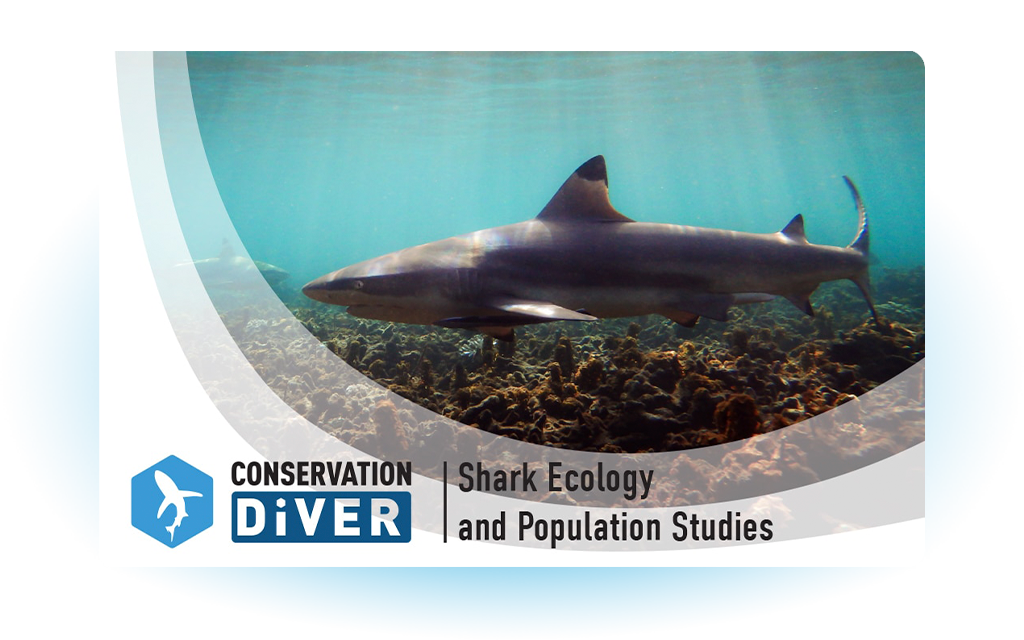
Shark Ecology & Population Studies
The Advanced Ecological Monitoring Program certification is a prestigious certification course for students seeking to gain knowledge and practice in a multitude of research techniques and demonstrate exceptional skill in performing reef surveys and data collection. This certification recognizes your commitment to coral reef monitoring and research and takes several weeks to achieve.
Learn various methods for surveying sharks, including estimating their abundance and diversity.
Recognize the vital role of sharks in the marine ecosystem, along with the global and local threats to their populations, and gain expertise in shark identification.
Understand the process of entering data into the Conservation Diver database and collaborating with partners like SharkTrust.org and the eShark Project to support shark conservation initiatives.
Gain hands-on experience in shark surveys while snorkeling or diving and proficiently record observed shark data.
Program Eligibility and Requirements
To join the Shark Ecology & Population Studies Program, participants need to meet the following criteria:
- Age Requirement: Applicants must be 12 years of age or older.
- Diver Certification: Applicants should hold certification as an Advanced diver from a recognized diving organization such as PADI, SSI, RAID, or similar. Alternatively, Open Water divers can be eligible if they have successfully completed a buoyancy appraisal under the guidance of a professional diver.
- Diving Proficiency: Applicants need to showcase advanced diving skills, including excellent buoyancy control and self-awareness.
Upon Enrollment in the Course, participants will be required to:
- Attend 1 lecture on Shark Ecology and Population Studies
- Perform a dive OR snorkel to observe sharks
- Record data on shark observations
- Enter data into Conservation Diver and partner databases
Sea Turtle Hatchery & Head-Starting Programs
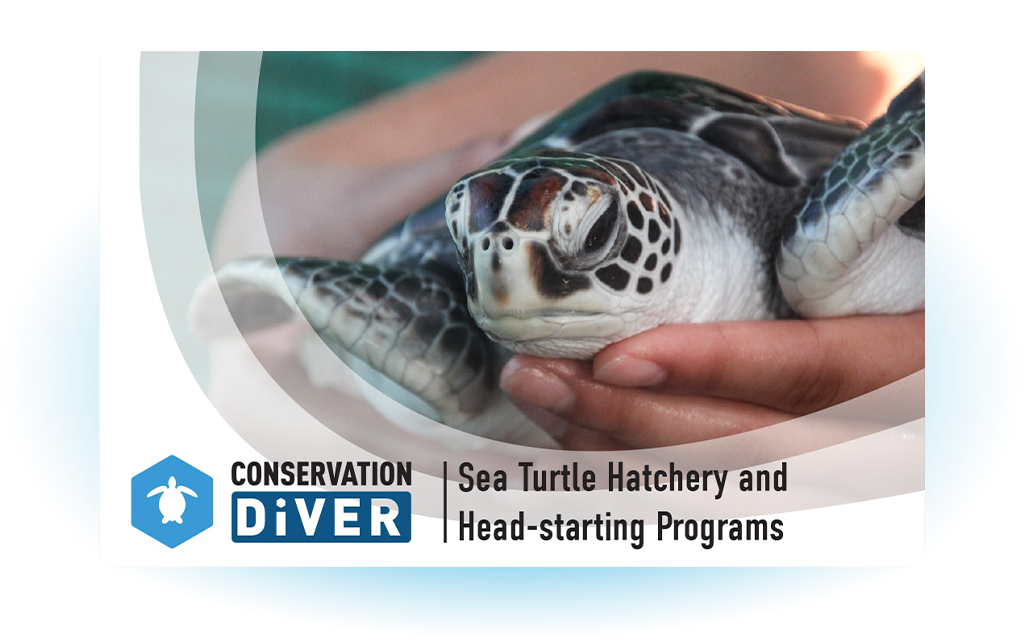
Sea Turtle Hatchery & Head-Starting Programs
All 7 species of sea turtle on the planet today are on the endangered species list, with populations of some reduced by 98%. However, local interventions and mitigation measures have shown to be successful in maintain and restoring populations in many locations around the globe. In this course, participants will learn about sea turtle conservation strategies and participate in locally-run programs aimed to protect and even increase local populations. Depending on the location, this may include hatchery, head-starting, rehabilitation, and release programs.
Learn about sea turtle ecology, evolutionary history, and the threats they face.
Gain skills in properly handling, caring for, and feeding sea turtles in hatchery, nursery, or rehabilitation programs, including monitoring their health and growth.
Understand the objectives and techniques of sea turtle hatchery and head-starting programs, as well as the associated scientific debate.
Gain skills in properly handling, caring for, and feeding sea turtles in hatchery, nursery, or rehabilitation programs, including monitoring their health and growth.
Program Eligibility and Requirements
To join the Sea Turtle Hatchery & Head-Starting Programs Program, participants need to meet the following criteria:
- Age Requirement: Applicants must be 12 years of age or older.
- Diver Certification: Applicants should hold certification as an Advanced diver from a recognized diving organization such as PADI, SSI, RAID, or similar. Alternatively, Open Water divers can be eligible if they have successfully completed a buoyancy appraisal under the guidance of a professional diver.
- Diving Proficiency: Applicants need to showcase advanced diving skills, including excellent buoyancy control and self-awareness.
- Certifications: Interested individuals must have completed the following certifications offered by our program:
Upon Enrollment in the Course, participants will be required to:
- Attend 1 lecture and 1 practical briefing
- Take data on sea turtle growth (weight and shell length) if at a nursery or rehabilitation program
- Perform at least three of the following activities:
- Take data on sea turtle growth (weight and shell length)
- Perform cleaning, feeding, and maintenance activities
- Undertake night beach patrols
- Learn how to protect and/or relocate sea turtle nests to a hatchery
- Take data on nesting sea turtles
- Take data on hatching success rates
- Complete exam
Published papers and reports derived through the teaching of this course
- Recruitment of hard coral communities on giant clam shells (Cardiidae: Tridacna) differ from surrounding reef habitats at a tourist destination in the Gulf of Thailand
Rahul Mehrotra, Alyssa Allchurch, Coline Monchanin, Chad M Scott - Citizen science reveals the population structure and seasonal presence of whale sharks in the Gulf of Thailand
Kirsty Magson, Emily Monacella, Chad Scott, Noémie Buffat, Sirachai Arunrugstichai, Metavee Chuangcharoendee, Simon J Pierce, Jason Holmberg, Gonzalo Araujo - Population dynamics of corallivores (Drupella and Acanthaster) on coral reefs of Koh Tao, a diving destination in the Gulf of Thailand by Chad M. Scott, Rahul Mehrotra, Margaux Y. Hein, Michelangelo S. Moerland, and Bert W. Hoeksema
- Rare zooxanthellate Nanipora octocoral (Helioporacea) in the Gulf of Thailand by Pau Urgell Plaza, Rahul Mehrotra, Chad M. Scott and James Davis Reimer
- Changes in hard coral abundance and composition on Koh Tao, Thailand, 2006-2014 by Chad M. Scott, Rahul Mehrotra, Madalena Cabral and Sirachai Arunrugstichai
- An update to the list of coral reef fishes from Koh Tao, Gulf of Thailand by Patrick Scaps and Chad M. Scott
- Incident Report and Restoration Overview: Boat Grounding, Chalok Ban Kao Reef, January 2017 2015. by Chad Scott, Spencer Arnold, Elouise Haskin, Kirsty Magson, Rahul Mehrotra, Joel Rorher, Pau Urgell Plaza
Sea Turtle Ecology & Monitoring
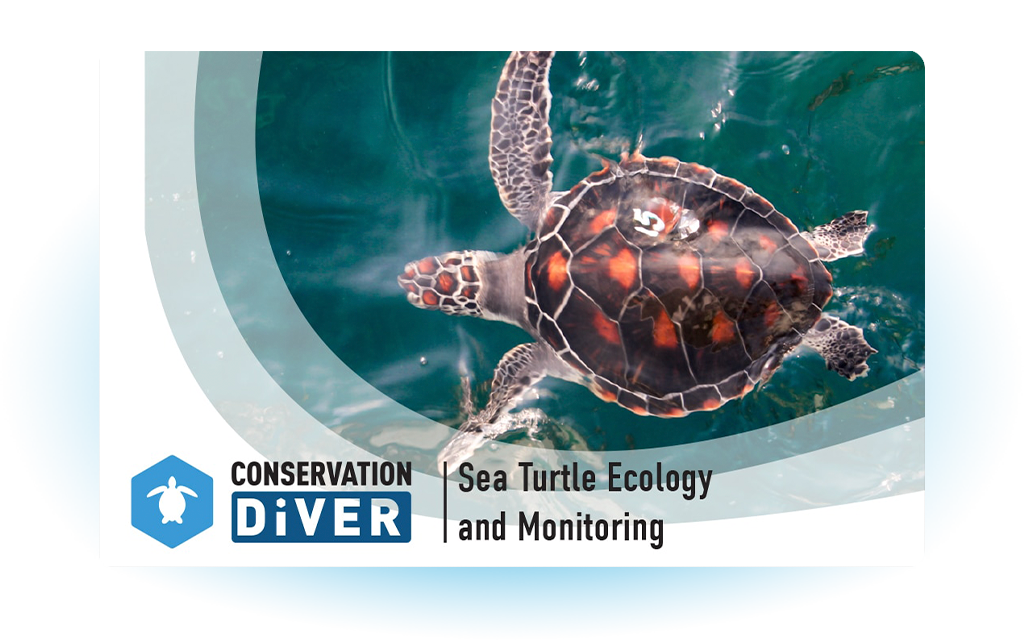
Sea Turtle Ecology & Monitoring
All 7 species of sea turtle on the planet today are on the endangered species list, with populations of some reduced by 98%. Divers form a network that is integral in the identification and monitoring of sea turtle populations around the globe. In this course, participants will learn about the ecology of sea turtles, threats to health, and multiple techniques used by professionals around the globe to track and ID individuals in their area and contribute to conservation efforts.
Understand techniques for identifying sea turtles and tracking their populations through photodocumentation.
Gain knowledge about sea turtle ecology, evolutionary history, and global population threats.
Comprehend how turtle sightings are coded and recorded in local databases, contributing to conservation efforts.
Learn to recognize sea turtle issues and implement strategies to mitigate local threats to their health and survival.
Program Eligibility and Requirements
To join the Sea Turtle Ecology & Monitoring Program, participants need to meet the following criteria:
- Age Requirement: Applicants must be 12 years of age or older.
- Diver Certification: Applicants should hold certification as an Advanced diver from a recognized diving organization such as PADI, SSI, RAID, or similar. Alternatively, Open Water divers can be eligible if they have successfully completed a buoyancy appraisal under the guidance of a professional diver.
- Diving Proficiency: Applicants need to showcase advanced diving skills, including excellent buoyancy control and self-awareness.
Upon Enrollment in the Course, participants will be required to:
- Attend the lecture on Sea Turtle Ecology and Monitoring
- Complete the Sea Turtle Ecology and Monitoring Exam and score at least 80%
- Attend the practical briefing prior to the observation dive
- Complete at least 1 dive to attempt to find and observe sea turtles (note: if sea turtles are not found participants can still receive the certification)
- If a sea turtle is observed, collect relevant data and photographs as per local standards
- Attend debriefing and data entry (if no turtles were found, briefing will still be giving as if a turtle was observed to understand the ID process)
Seagrass Ecology & Monitoring
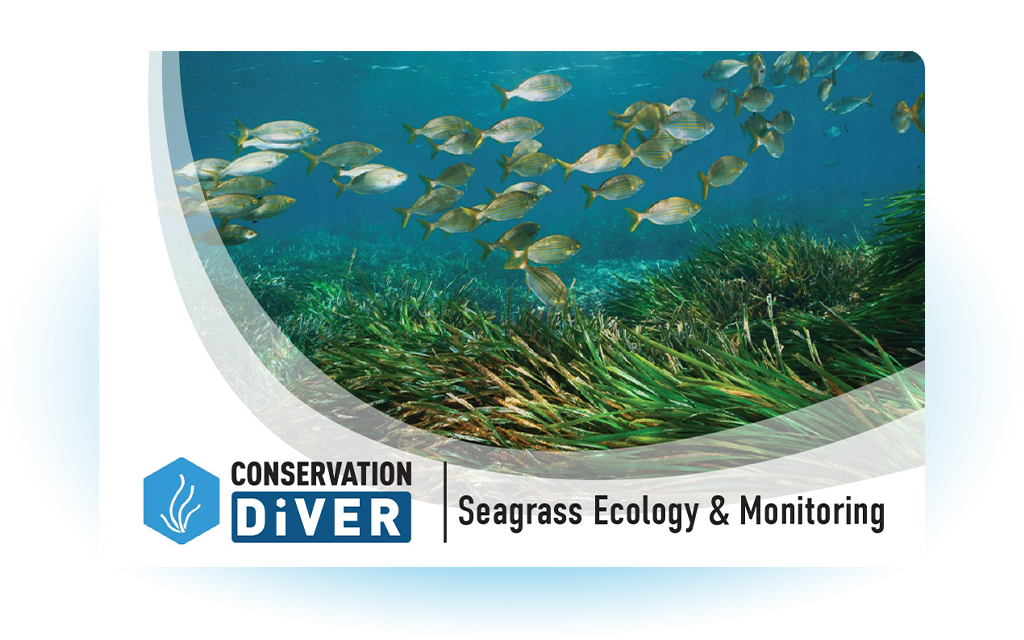
Seagrass Ecology & Monitoring
Seagrass meadows are crucial components of coastal ecosystems. They prevent erosion, regulate nutrient flow to coral reefs, provide habitat and nurseries for marine life, and serve as vital carbon sinks. They are also essential food sources, supporting herbivorous and detritivorous food chains, with species like dugongs and green sea turtles relying heavily on them. However, these meadows are rapidly declining, with a 30% loss since the 1980s. This course aims to raise awareness of the human-induced threats they face and generate research to advance understanding and conservation efforts for these vital ecosystems.
Familiarize yourself with the anatomy and morphology of various seagrass types, focusing on diagnostic features for identification.
Differentiate between terrestrial plants and seagrass.
Grasp the taxonomic system for classifying marine plants and microorganisms, including family and genus recognition, and learn techniques for monitoring and recording seagrass data.
Understand the significance of seagrass and the current threats it faces.
Program Eligibility and Requirements
To join the Seagrass Ecology & Monitoring Program, participants need to meet the following criteria:
- Age Requirement: Applicants must be 12 years of age or older.
- Diver Certification: Applicants should hold certification as an Advanced diver from a recognized diving organization such as PADI, SSI, RAID, or similar. Alternatively, Open Water divers can be eligible if they have successfully completed a buoyancy appraisal under the guidance of a professional diver.
- Diving Proficiency: Applicants need to showcase advanced diving skills, including excellent buoyancy control and self-awareness.
- Certifications: Interested individuals must have completed the following certifications offered by our program:
Upon Enrollment in the Course, participants will be required to:
- Attend the practical session to understand the monitoring techniques used to survey seagrass
- Practice identifying seagrass on land using photo analysis and/or specimens
- Perform 2 survey dives to analyse seagrass coverage and density using different methodologies
- Be able to accurately identify at least 5 of the most common seagrass genera to the region
- Complete e-Learning
Published papers and reports derived through the teaching of this course
- Recruitment of hard coral communities on giant clam shells (Cardiidae: Tridacna) differ from surrounding reef habitats at a tourist destination in the Gulf of Thailand
Rahul Mehrotra, Alyssa Allchurch, Coline Monchanin, Chad M Scott - Citizen science reveals the population structure and seasonal presence of whale sharks in the Gulf of Thailand
Kirsty Magson, Emily Monacella, Chad Scott, Noémie Buffat, Sirachai Arunrugstichai, Metavee Chuangcharoendee, Simon J Pierce, Jason Holmberg, Gonzalo Araujo - Population dynamics of corallivores (Drupella and Acanthaster) on coral reefs of Koh Tao, a diving destination in the Gulf of Thailand by Chad M. Scott, Rahul Mehrotra, Margaux Y. Hein, Michelangelo S. Moerland, and Bert W. Hoeksema
- Rare zooxanthellate Nanipora octocoral (Helioporacea) in the Gulf of Thailand by Pau Urgell Plaza, Rahul Mehrotra, Chad M. Scott and James Davis Reimer
- Changes in hard coral abundance and composition on Koh Tao, Thailand, 2006-2014 by Chad M. Scott, Rahul Mehrotra, Madalena Cabral and Sirachai Arunrugstichai
- An update to the list of coral reef fishes from Koh Tao, Gulf of Thailand by Patrick Scaps and Chad M. Scott
- Incident Report and Restoration Overview: Boat Grounding, Chalok Ban Kao Reef, January 2017 2015. by Chad Scott, Spencer Arnold, Elouise Haskin, Kirsty Magson, Rahul Mehrotra, Joel Rorher, Pau Urgell Plaza
Seahorse Ecology and Monitoring
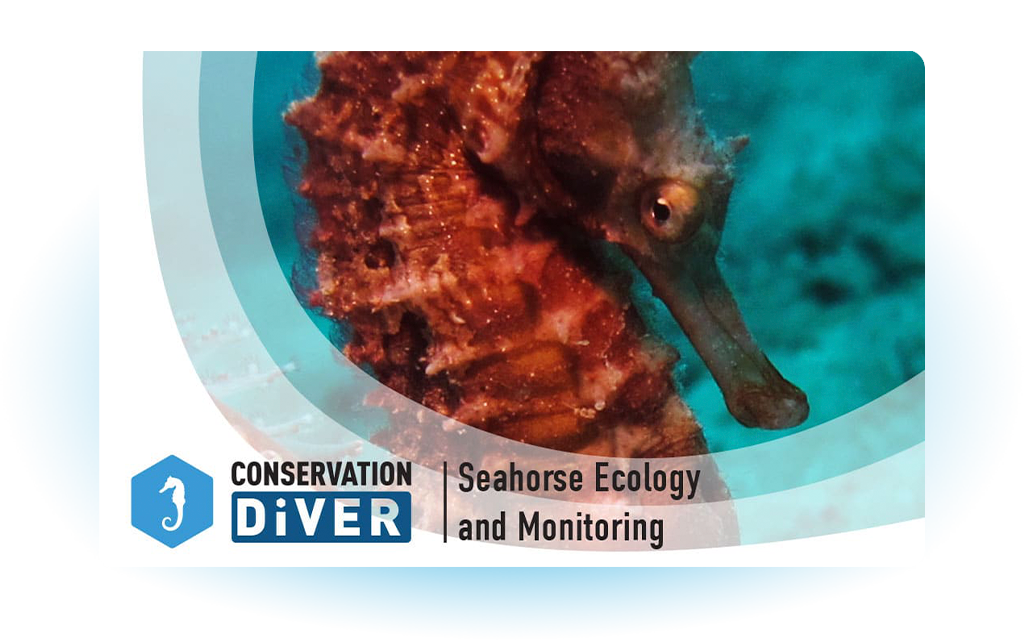
Seahorse Ecology and Monitoring
The Seahorse Ecology and Monitoring course aims to fill the scientific knowledge gap regarding Syngnathiformes’ classification, population dynamics, and conservation status. This lack of information hinders the development of effective conservation strategies for these vulnerable species. To create successful seahorse conservation plans, we must comprehend their life history and ecology. This course will provide you with the skills to identify seahorse species based on anatomical features and behavioral ecology traits.
Master diagnostic features for identifying common local seahorse species.
Understand global and local threats to seahorse populations and their ecology.
Be familiar with iSeahorse.org for entering seahorse sightings data into the global database.
Learn seahorse survey methods, including roving diver and transect methods, and gain practical experience.
Program Eligibility and Requirements
To join the Seahorse Ecology and Monitoring Program, participants need to meet the following criteria:
- Age Requirement: Applicants must be 12 years of age or older.
- Diver Certification: Applicants should hold certification as an Advanced diver from a recognized diving organization such as PADI, SSI, RAID, or similar. Alternatively, Open Water divers can be eligible if they have successfully completed a buoyancy appraisal under the guidance of a professional diver.
- Diving Proficiency: Applicants need to showcase advanced diving skills, including excellent buoyancy control and self-awareness.
Upon Enrollment in the Course, participants will be required to:
- Attend 1 seahorse lecture
- Attend 1 seahorse dive briefing
- Complete ID quiz using dichotomous key and seahorse photos
- Complete 1 seahorse survey dives (in 2 different roles)
- Enter GPS data into Google Earth
- Enter sightings and data into the iSeahorse.org and other relevant databases (if seahorse was observed)
Nudibranch & Sea Slug Ecology
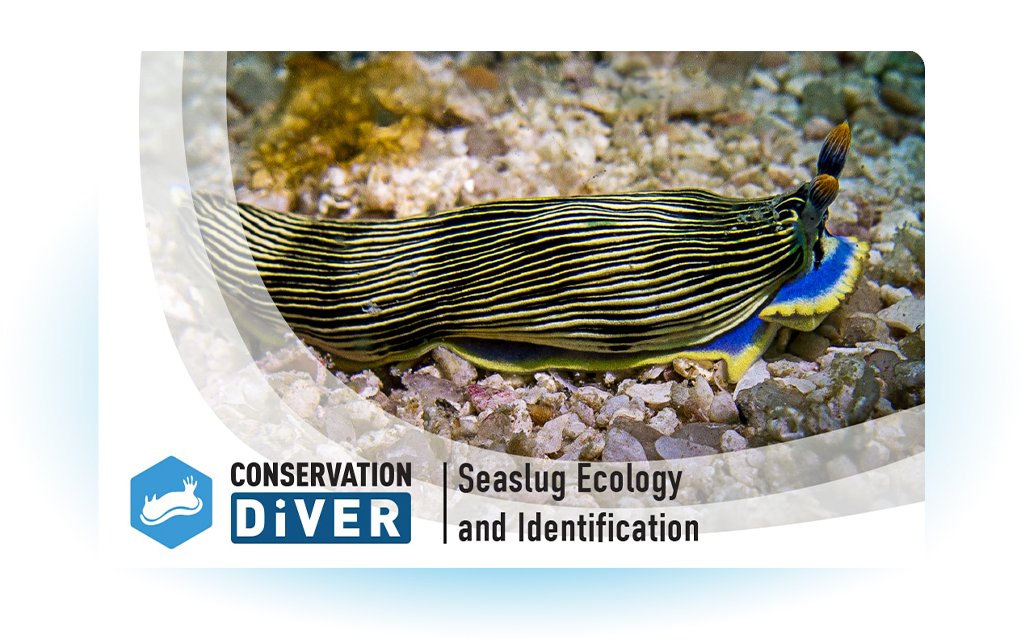
Nudibranch & Sea Slug Ecology
Nudibranchs, and other sea slugs, are a diverse and fascinating group of marine gastropods that have developed very colorful and ornate forms. Apart from being a favorite sighting by divers and photographers, their biodiversity is an indicator of total reef diversity, and also can be used when assessing changes in the physical or biological composition of marine areas in the face of disturbances. In our course you will learn about the ecology and taxonomy of sea slugs, and about how to conduct scientific surveys to monitor their abundance and diversity.
Develop skills to differentiate sea slug families based on anatomy.
Understand the global ecological and economic roles of sea slugs.
Master diverse survey methods for marine invertebrates in muck.
Familiarize yourself with hierarchical taxonomy and identification techniques.
Program Eligibility and Requirements
To join the Nudibranch & Sea Slug Ecology Program, participants need to meet the following criteria:
- Age Requirement: Applicants must be 12 years of age or older.
- Diver Certification: Applicants should hold certification as an Advanced diver from a recognized diving organization such as PADI, SSI, RAID, or similar. Alternatively, Open Water divers can be eligible if they have successfully completed a buoyancy appraisal under the guidance of a professional diver.
- Diving Proficiency: Applicants need to showcase advanced diving skills, including excellent buoyancy control and self-awareness.
Upon Enrollment in the Course, participants will be required to:
- Attend the nudibranch and sea slug lecture
- Complete the Sea Slug Quiz with a passing grade of at least 80%
- Attend at least 1 briefing involving procedures for diving in soft-sediment habitats (aka. muck habitat)
- Conduct at least 1 survey to observe and record sea slugs
- Complete identification of 2 different species (underwater or using photos) using online and library resources
Published papers and reports derived through the teaching of this course
- A new species of coral-feeding nudibranch (Mollusca: Gastropoda) from the Gulf of Thailand. by Rahul Mehrotra, Spencer Arnold, Adam Wang, Suchana Chavanich, Bert W. Hoeksema & Manuel Caballer
- Selective consumption of sacoglossan sea slugs (Mollusca: Gastropoda) by scleractinian corals (Cnidaria: Anthozoa) by Rahul Mehrotra, Coline Monchanin, Chad M. Scott, Niphon Phongsuwan, Manuel Caballer Gutierrez, Suchana Chavanich, Bert W. Hoeksema
- The extraordinary genus Myja is not a tergipedid, but related to the Facelinidae s. str. with the addition of two new species from Japan (Mollusca, Nudibranchia) by Alexander Martynov, Rahul Mehrotra, Suchana Chavanich, Rie Nakano, Sho Kashio, Kennet Lundin, Bernard Picton and Tatiana Korshunova
- The formerly enigmatic Unidentiidae in the limelight again: a new species of the genus Unidentia from Thailand (Gastropoda: Nudibranchia) by Tatiana Korshunova, Rahul Mehrotra, Spencer Arnold, Kennet Lundin, Bernard Picton and Alexander Martynov
- On the genus Armina (Gastropoda: Heterobranchia: Nudibranchia) in Thailand by Rahul Mehrotra, Manuel Caballer Gutierrez and Suchana Chavanich
- Species inventory of sea slugs (Gastropoda: Heterobranchia) for Koh Tao, Thailand, with 25 first records for Thai waters by Rahul Mehrotra and Chad M. Scott
- Predation on a sacoglossan gastropod by a mushroom coral by Rahul Mehrotra, Chad M. Scott, Joel M. Rohrer and Bert W. Hoeksema
- A new species of coral-eating nudibranch
- Corals Have Evolved to Eat Sea Slugs
- The Koh Tao Team Makes a New Nudibranch Discovery
- A New species of Sea Slug – Found on Koh Tao
Mineral Accretion Technology Basics & Techniques
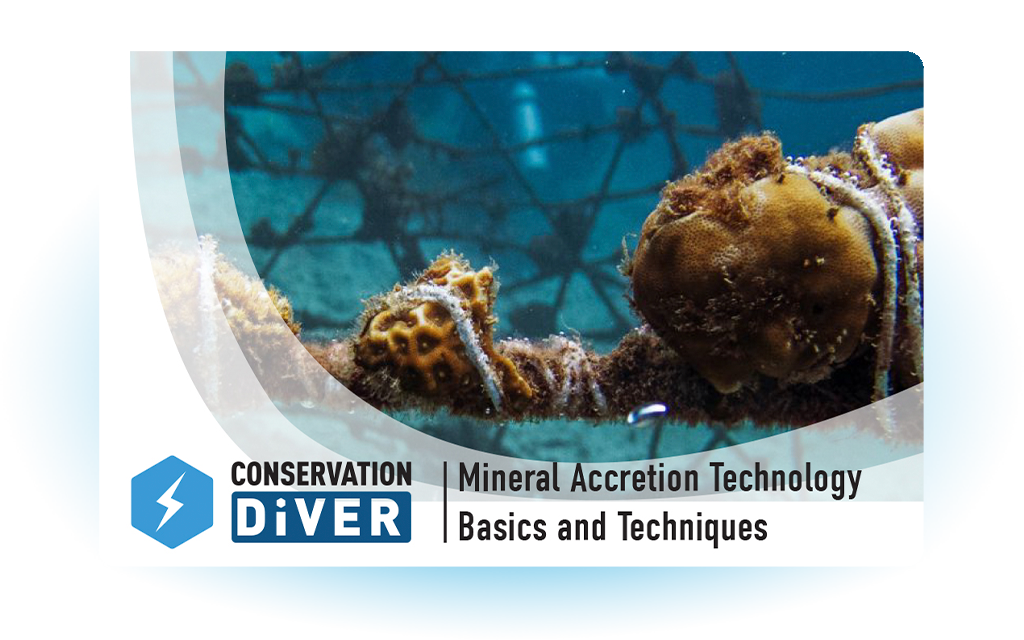
Mineral Accretion Technology Basics & Techniques
The Mineral Accretion Technology Basics & Techniques Course is designed to give students an introduction to the impacts of climate change on coral reefs around the planet, and also on tools that can be used to protect corals in the face of bleaching events. The course teaches students the basics of ocean chemistry, sea water electrolysis, and the construction / maintenance of low-voltage mineral accretion devices.
Explore the use and construction of mineral accretion devices for coral restoration and protection projects.
Gain insight into the global effects of climate change on coral reefs.
Understand reef managers' strategies for coral reef management in the context of climate change.
Learn about ocean chemistry, including the connection between ocean pH and reef growth.
Program Eligibility and Requirements
To join the Mineral Accretion Technology Program, participants need to meet the following criteria:
- Age Requirement: Applicants must be 12 years of age or older.
- Diver Certification: Applicants should hold certification as an Advanced diver from a recognized diving organization such as PADI, SSI, RAID, or similar. Alternatively, Open Water divers can be eligible if they have successfully completed a buoyancy appraisal under the guidance of a professional diver.
- Diving Proficiency: Applicants need to showcase advanced diving skills, including excellent buoyancy control and self-awareness.
- Certifications: Interested individuals must have completed the following certifications offered by our program:
Upon Enrollment in the Course, participants will be required to:
- Attend the lecture on climate change impacts to coral reefs, and mineral accretion devices
- Visit a mineral accretion device for data collection, monitoring, and maintenance
- Complete and pass the written exam
